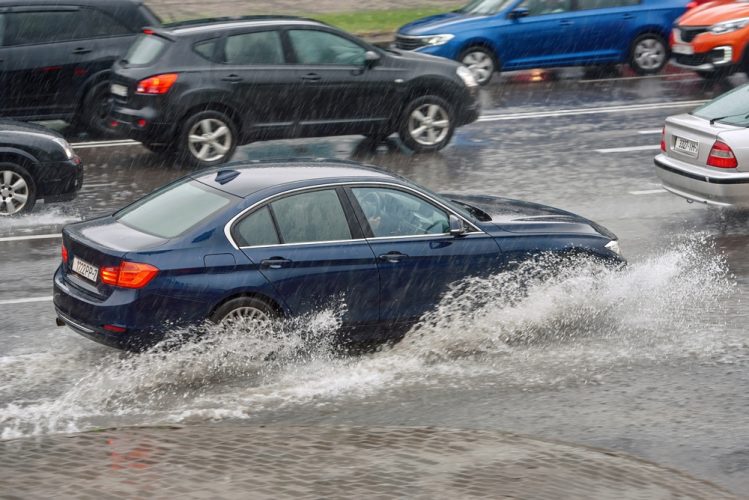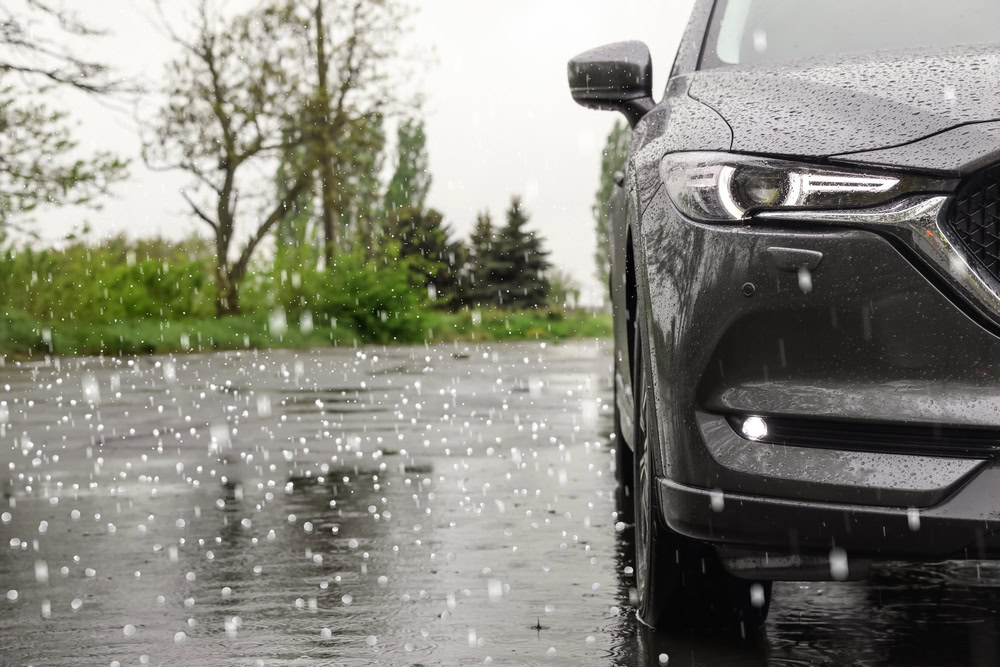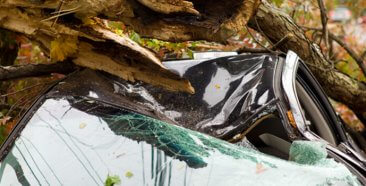
When you think about your car insurance, you probably focus on how your policy can protect you from collisions and accidents. However, other drivers aren’t the only thing you need to worry about; it’s also important to consider how weather and auto insurance interact.
Inclement weather can do all kinds of damage to your vehicle, from hail dents to damage from flying debris to flooding. Understanding common risks in your area can help you find an auto insurance plan that can take care of this unexpected damage.
The Sky-High Cost of Weather’s Fury on Vehicles
High winds, heavy rains, and extreme temperatures can wreak havoc on your property, including your car. Hail and flying debris can bang up your car’s exterior pretty badly, while floods and fires can easily total your vehicle. Because these repairs can quickly add up, it’s important to select an insurance plan that will give you sufficient coverage.
Extreme Weather Wheels: Understanding Your Auto Insurance Coverage
Does car insurance cover natural disasters? When it comes to weather and auto insurance, damages are typically covered by comprehensive coverage, which handles claims unrelated to a collision with another driver.
That means if Mother Nature strikes, you’ll only have to worry about your deductible. However, different perils can be more prominent in different areas of the country, so it can be helpful to break down various types of natural disasters to ensure you’re fully covered.
When Hail Strikes: Does Your Policy Offer Shelter?
Does car insurance cover hail damage? If you have a comprehensive plan, the answer is yes. Protecting yourself from hail damage is one of the main reasons you should get comprehensive coverage.
Even though hail won’t likely disrupt the mechanical functions of your vehicle, hail damage can often involve extensive bodywork. You may need to have entire panels of your car completely replaced; in some situations, hail damage can total your vehicle. If you live in an area with lots of hail, you can expect higher deductibles and prices for comprehensive coverage, but those basic costs can still be cheaper than paying for the repairs on your own.
Flooded Roads and Insurance Floats: Are You Covered?
Does car insurance cover flood damage? Only if you have comprehensive coverage. If you only have liability or collision coverage, you won’t be able to file a claim if your car is damaged in a flood. If you live in an area prone to flooding, it’s important to get a comprehensive plan to keep you covered.
Even if you live in an area where floods aren’t common, the extra protection is still a good idea. Along with causing cosmetic problems like staining your upholstery, floods can do extensive internal damage to your vehicle’s engine and other mechanical components. Plus, moisture after a flood can lead to serious molding issues that could ultimately affect your health if you leave them festering in your vehicle.
Tornado Trouble: How Wind Damage Affects Your Coverage
During a tornado, the strong winds can blow objects around and turn them into projectiles, causing debris to dent your car or break your windows. If you inspect your car after a tornado and find new flaws in need of repair, you’ll have to file a claim with your comprehensive plan. If you live in Tornado Alley, you may have a higher-than-average deductible to account for the increased risk.

Wildfire Risks and Your Ride: Does Your Policy Protect Against Fire?
Wildfires have been all over the news lately. If you live in wildfire-prone area, you’re probably asking yourself: “Does car insurance cover wildfire damage? And does car insurance cover fire damage in general?”
Fire damage is actually a bit more complicated than other hazards. Fire damage can come from many different sources and situations, making it different from other weather and auto insurance claims. If the fire is directly related to an accident, it will likely get covered by your collision plan. If it’s related to weather or vandalism, however, you’ll need to have comprehensive coverage.
For example, say you get into an accident, and your car catches on fire. In that case, you could file with your collision plan. However, if your vehicle gets burned in a wildfire, you would need to have comprehensive protection in order to make a claim.
Winter Woes: Coverage for Ice, Snow, and Freezing Conditions
Not all weather-related damage comes from major natural disasters. Sometimes, cold temperatures and ice are enough to cause issues. Learning how to take care of your car in extreme cold can help you prevent common problems, but sometimes you can still encounter issues.
There are multiple situations where winter weather might lead to an insurance claim. For example, if a falling icicle breaks your window or dents your hood, you could file a comprehensive claim. If you or another driver spins out on the ice, resulting in a collision, you can file under your collision coverage.
However, there are some winter-related incidents that won’t fall under protection. For example, sometimes ultra-cold temperatures can interfere with how your battery works. Metal parts may expand and contract, leading to cracks. These regular maintenance issues wouldn’t fall under your auto insurance. As a result, it’s essential to winter proof your car to avoid operational problems.
After the Hurricane: Navigating Claims for Storm Surge and Debris Damage
Finally, does car insurance cover hurricane damage? Just like damage from other extreme weather events, hurricane-related claims will have to go through your comprehensive auto policy. Hurricanes can cause both water and wind damage, so it’s especially important to get the comprehensive add-on if you live in a coastal area that could be subject to hurricanes.
Steering Through Change: Insurance Rates Amidst Rising Weather Concerns
Climate change has increased the frequency of extreme weather events in many parts of the world. As a result, some companies have increased the cost of comprehensive auto insurance, especially for customers who live in areas known for extreme temperatures, storms, floods, and more.
If you’re concerned about inclement weather and auto insurance costs, however, there are ways to save. As a driver, you can keep your rates low by shopping around and comparing your options. Driving carefully and taking proper precautions to protect your car from damage can also help. For example, storing your car in your garage or under an awning before potential hail is a great way to avoid having to make a claim.
Protect Your Car from the Weather, Get a Free Quote on Auto Insurance
Weather-related damage can be extremely costly, especially if you live in an area prone to natural disasters. While a standard liability or collision plan won’t cover these repairs, you can effectively protect yourself with a comprehensive policy. Such a plan will help cover repairs after tornadoes, floods, fires, and more, so you’ll be fully covered when it comes to weather and auto insurance.
If you’re looking for a plan you can rely on as the weather gets more intense, head down to your local Freeway Insurance. At Freeway, you’ll be able to find an affordable, comprehensive plan that will help you keep your vehicle looking like new, even after it gets dinged up in a hailstorm. Protect yourself today by finding a store near you, comparing plans online, or calling an experienced agent at (800) 777-5620.



